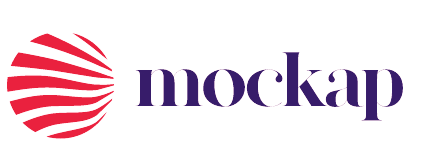Our Blog

- July 19, 2024
- 0 Comments
- Emmanuel Samuel Agbedejobi
21st Century Learning in Africa: Preparing Youth for a Rapidly Changing World
In an era of unprecedented technological advancement and global interconnectedness, the concept of 21st-century learning has become increasingly vital, particularly for Africa. This educational paradigm focuses on equipping students with the skills, knowledge, and mindsets necessary to thrive in a rapidly evolving world. For Africa, with its youthful population and emerging economies, embracing 21st-century learning is not just an educational imperative but a crucial step towards sustainable development and global competitiveness.
Critical Thinking and Problem-Solving
At the heart of 21st-century learning is the shift from rote memorization to critical thinking and problem-solving. Many African educational systems, historically rooted in colonial models, have long emphasized memorization over analytical skills. However, to address the complex challenges facing the continent, from climate change to urbanization, Africa's youth need to be adept problem-solvers and critical thinkers.
Inquiry-based learning methods are being implemented across the continent to foster these skills. In one West African country, a pilot program encourages students to identify local community issues and develop solutions using design thinking principles. This approach not only enhances problem-solving skills but also instills a sense of civic responsibility.
Another initiative in East Africa uses debate clubs to promote critical thinking. Students engage in structured arguments about social, political, and economic issues, learning to analyze information, construct logical arguments, and consider multiple perspectives.
Creativity and Innovation
Fostering creativity and innovation is crucial for Africa's economic growth and diversification. Many countries are integrating entrepreneurship education into their curricula, encouraging students to think creatively about solving local problems through innovative business solutions.
Makerspaces and innovation hubs are springing up in schools and universities across the continent. In a Southern African country, a network of school-based makerspaces provides students with tools and materials to prototype their ideas, from simple machines to solar-powered devices. These spaces not only nurture creativity but also provide hands-on experience with technology and engineering principles.
Some progressive schools are also integrating arts with STEM subjects (Science, Technology, Engineering, and Mathematics) to create STEAM programs. This approach recognizes that creativity is essential in all fields, including scientific and technological innovation.
Digital Literacy
In our increasingly digital world, ensuring students are digitally literate is paramount. However, Africa faces significant challenges in this area due to the digital divide. Many schools lack basic computer equipment, let alone internet connectivity.
Despite these challenges, innovative programs are making strides. A pan-African initiative provides low-cost, rugged tablets preloaded with educational content to schools in remote areas. Another program in North Africa trains teachers to integrate smartphones (which are more widely available than computers) into their lessons, teaching students to use these devices as learning tools.
Beyond basic computer skills, schools are beginning to teach digital citizenship, helping students navigate online information critically and safely. Coding clubs and bootcamps are also gaining popularity, preparing African youth for opportunities in the global digital economy.
Collaboration and Communication
In our interconnected world, the ability to collaborate effectively and communicate across cultures is invaluable. African schools are increasingly emphasizing group projects and peer-to-peer learning to develop these skills.
Technology is being leveraged to connect classrooms across borders. One initiative links schools across different African countries for collaborative projects, fostering pan-African understanding and cooperation. Another program connects African classrooms with peers in other continents, providing opportunities for cultural exchange and global awareness.
Many African countries are also promoting multilingualism in education, recognizing it as a key asset in a globalized world. While colonial languages often remain the primary medium of instruction, there's a growing movement to integrate indigenous languages into the curriculum, both to preserve cultural heritage and to cognitively benefit from multilingual education.
Adaptability and Lifelong Learning
With the rapid pace of technological change, many of today's students will likely work in jobs that don't yet exist. Therefore, instilling adaptability and a commitment to lifelong learning is crucial.
Schools across Africa are working to encourage a growth mindset among students, teaching them that abilities can be developed through dedication and hard work. This approach helps students become more resilient in the face of challenges and more open to continuous learning.
There's also a growing recognition of the need to break down the traditional barriers between academic and vocational education. Some countries are implementing systems that allow for easier movement between vocational and academic tracks, recognizing that in the 21st century, all careers require a mix of practical skills and theoretical knowledge.
Global and Cultural Awareness
While preparing students for the global stage, African educators are also grappling with how to balance this with preserving and promoting local cultures and values. Many schools are integrating modules on African history, culture, and indigenous knowledge systems into their curricula.
Some innovative programs use technology to promote this balance. A virtual reality project allows students to take immersive "tours" of historical African cities and civilizations, fostering pride in African heritage while using cutting-edge technology.
Environmental Stewardship and Sustainability
As climate change poses increasing challenges to Africa, environmental education has become a critical component of 21st-century learning. Schools are integrating climate change education and sustainable development goals into their curricula.
Practical initiatives include school gardening projects that teach sustainable agriculture techniques, and recycling programs that instill the importance of resource conservation. Some schools have become models of sustainability themselves, implementing solar power, rainwater harvesting, and other eco-friendly practices.
Challenges and Opportunities
Implementing 21st-century learning in Africa faces significant challenges. Many schools struggle with basic infrastructure, let alone advanced technology. Teacher training is another crucial issue, as educators need support to shift their teaching methods and integrate new technologies.
However, these challenges also present opportunities for innovation. Africa has the chance to leapfrog older educational models and implement cutting-edge approaches. Mobile technology, for instance, offers possibilities for reaching remote areas with educational content and teacher training.
Conclusion
The shift towards 21st-century learning in Africa represents a transformative opportunity for the continent. By equipping youth with critical thinking skills, creativity, digital literacy, and global awareness, Africa can prepare its next generation to not only participate in the global knowledge economy but to become leaders and innovators.
However, realizing this potential will require concerted effort and investment from policymakers, educators, parents, and communities. It will necessitate rethinking traditional educational models, investing in teacher training, and creatively addressing infrastructure challenges.
The stakes are high, but so is the potential reward. By embracing 21st-century learning, Africa can harness the power of its youth bulge, driving innovation, economic growth, and sustainable development. The future of Africa – and indeed, the world – may well depend on the success of these educational transformations.

0 Comment(s)